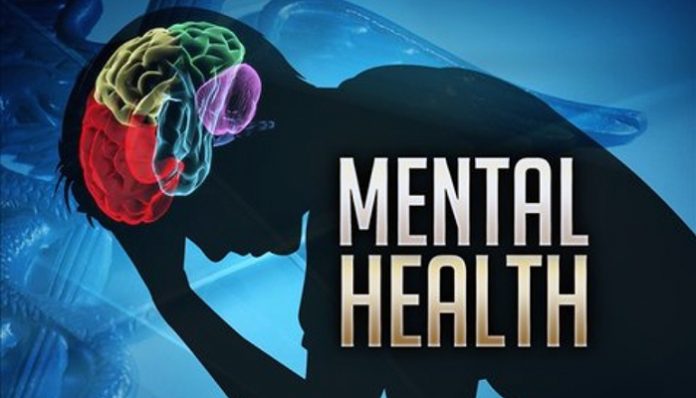Decrying the state of mental health treatment in the country, the Human Rights Commission of Sri Lanka (HRCSL) has said some of the actions and lack of facilities ‘amount to torture’.
In a shocking report expressing its deep concern about the ongoing rights violation of the mentally ill patients in the country, the HRCSL has also released a set of guidelines coinciding with the International Human Rights Day observed every year on the 10th of December.
Their interim report has also called for a new Mental Health Act immediately.
This concern comes after certain key grievances were presented to the HRCSL on behalf of mental health patients, which include staff mismanagement at the National Institute of Mental Health (NIMH), Sri Lanka.
Some of their shocking findings detail the degrading treatment of patients.
Complaints have been registered about “the staff beating patients in CCTV blind spots”. Additionally, a disturbing incident of a death of a patient suspected to have been caused by a support staff also finds a mention in their report.
The report was part of a ‘Fact Finding Mission on Right to Health and Liberty of Patients at the NIMH’.
A set of new guidelines was also released by the HRSCL in its 11 page report to deal with their concerns to the Ministry of Health, NIMH, Sri Lanka Police, and the Department of Prisons.
“Immediate measures should be taken to enact a Mental Health Act, which is in line with the international medical standards and human rights obligations of the state” the nation’s human rights body recommended as part of its guidelines.
While addressing these significant concerns the state rights body has urged the government to look after the wellbeing of the mental health patients during their rehabilitation.
The guidelines also referred to the administrative structure of the NIMH situated in Angoda Mental Health Asylum.
Angoda Hospital is ‘the largest tertiary care hospital in Sri Lanka caring for clients with mental illness and the only mental health care facility in Sri Lanka facilitating involuntary admissions.’
Amongst the concerns raised by the Commission are water provisions, food, spacing, and treatment of patients at hospitals and care centers who deal with and treat them. While expressing deep concern about the continuing rights violation of the mentally ill, the HRSCL has pointed out that sometimes people without qualification treat them.
“Most male wards are staffed by female nurses, patient management in such situations is carried out by the support staff who are not trained for the task. Therefore, the effectiveness of such patient management is questionable. It was reported that most of the time support staff refused to adhere to the existing protocols when handling patients”.
Apart from the mismanaged treatment, concerns have also been expressed about offering alternative treatments at times which are alleged to have haphazard effects.
“In addition to the shortage of medication being an ongoing problem, the hospital also has had several quality failures of the drugs as well. When the medicines are out of stock, alternatives are being used for the treatments. However, it was relayed that most of these alternatives have more side effects than the high-quality medicines that are out of stock”.
The high cost of medication for mentally ill patients is also a matter of concern which is creating further crisis, says the HRCSL.
Due to the high cost, the discharged patients also struggle to afford their medication which has also led to “an increase in relapses and recurrent admissions.”
Among the other major concerns pointed out by the Commission was the issue of water and sanitation.
Since patients with mental illnesses could easily spoil their clothes and bed sheets, a constant water supply without any disruption is essential. This ‘constant water supply’ was said to be inconsistent as NIMH lacked a water storage facility which causes inconveniences, especially during water cuts, its report added.
Apart from the non-availability of a continuous water supply, protecting patients from mosquitos was yet another issue affecting the mentally ill patients at the NIMH. Mosquito nets are being used due to the suicidal risks of patients.
Language barriers have been identified as a major issue in dealing with and treating mentally ill patients. The HRCSL says a majority of the staff members encounter challenges in communicating with Tamil-speaking patients. This caused communication issues though the staff tried to understand what was being said through other means such as Google Translate. Guidelines were also issued suggesting better staff training including Tamil language proficiency.
Whilst NIMH seek assistance from other patients and members of the support staff use technology such as ‘Google Translate’ HRCSL says “it is unclear if they can accurately ascertain the patients’ requirements”.
Faced with a challenging situation in dealing with mental health in Sri Lanka, the Human Rights Commission has called for a new Mental Health Act in line with international medical standards. This has been set as a priority guideline for the Ministry of Health.
Better food guidelines and grievance mechanism has also been suggested to be implemented at the NIMH and made available to patients and families for them to be able to communicate their woes.
As part of the guidelines issued a police post is also recommended for the NIMH and ensuring prison guards to monitor the Forensic Psychiatric Ward.


